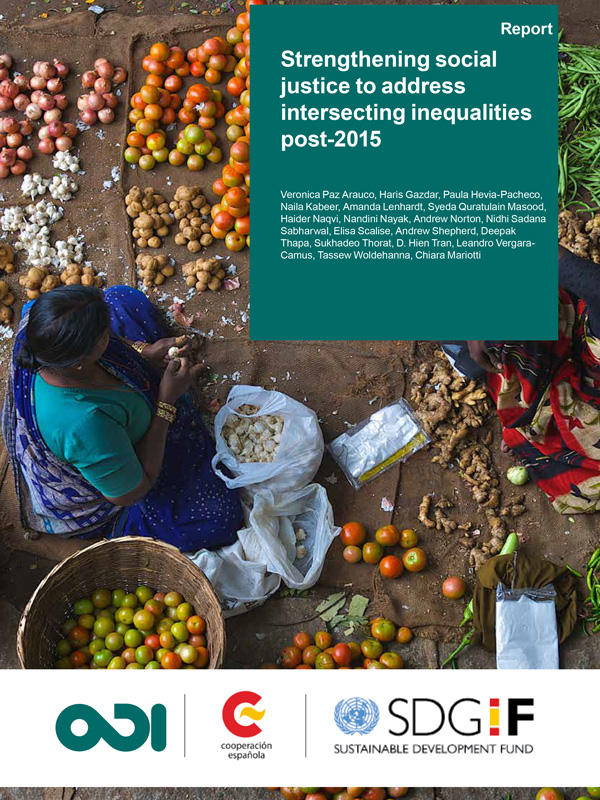The SDG Fund is operationally closed. This site is alive for knowledge and dissemination purposes.
Warning: This website is closed. Be aware of phishing or social engineering fraudulent requests of payments or certificates. Explore our programme areas.
Please visit jointsdgfund.org
Publication
Strengthening social justice to address intersecting inequalities
Published by: The Overseas Development Institute
About
The people most likely to be left behind by development are those facing ‘intersecting inequalities’, or economic deficits intersecting with discrimination and exclusion on the grounds of identity and locational disadvantage.
The experience of seven countries (Brazil, Ecuador, Bolivia, India, Ethiopia, Pakistan and Nepal) shows that key ingredients for addressing intersecting inequalities are: social movements demanding changes in the ‘rules of the game’; political trajectories and processes of constitutional change that facilitate and actualize these changes; social guarantees, opportunity enhancements and developmental affirmative actions as well as specific policies and programmes which show commitment to reduce intersecting inequalities over time.
The post-2015 agenda can help establish global norms which will support and encourage mobilisation to tackle intersecting inequalities, including a strong commitment to universal quality basic services, and the development of countryspecific frameworks of targets and indicators monitoring intersecting inequalities.
The experience of seven countries (Brazil, Ecuador, Bolivia, India, Ethiopia, Pakistan and Nepal) shows that key ingredients for addressing intersecting inequalities are: social movements demanding changes in the ‘rules of the game’; political trajectories and processes of constitutional change that facilitate and actualize these changes; social guarantees, opportunity enhancements and developmental affirmative actions as well as specific policies and programmes which show commitment to reduce intersecting inequalities over time.
The post-2015 agenda can help establish global norms which will support and encourage mobilisation to tackle intersecting inequalities, including a strong commitment to universal quality basic services, and the development of countryspecific frameworks of targets and indicators monitoring intersecting inequalities.
View online / download
General Information
| SDGs | |
|---|---|
| Published | 2014 |
| Thematic Area | Inclusive economic growth for poverty eradication |


